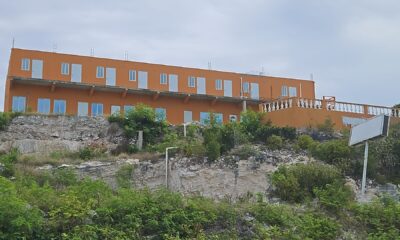#TurksandCaicos, September 1, 2022 – I am very concerned about the lack of clinical services being made available to our citizens at both the Cockburn Town hospital, Grand Turk, and the Cheshire Hall Hospital, Providenciales. And when I investigated what clinical services are accessible in Grand Turk, it is extremely far less than being offered at Cheshire Hall.
A number of patients have brought to my attention the difficulty in getting an appointment to be seen, and many have expressed the feeling of being neglected. And as we all know that with health matters timing is everything. Early detection and early interventions almost always save lives and prevent future life-threatening complications.
have expressed the feeling of being neglected. And as we all know that with health matters timing is everything. Early detection and early interventions almost always save lives and prevent future life-threatening complications.
During my time as Health Services Manager and before that as Laboratory Director, it had always been the target to have both Health Services locations properly equipped and staffed to tackle the citizens’ health needs. Both locations had identical equipment, and identical complement of staff, with a few variations in numbers. Grand Turk Location handled Salt Cay and South Caicos, and Providenciales location handled North and Middle Caicos.
When I was the Minister of Health, much progress was being made in the reestablishing of old community clinics, e.g.; the town clinic location in Grand Turk, and also returning Myrtle Rigby Health Complex location back to a health care facility for our people. The goal was, and still is, to have regular weekly specialist clinics with other needed services for all islands. Additionally, to have all community clinics equipped with basic laboratory testing abilities and imaging capabilities, i.e., blood electrolytes, red and white blood cell counts, glucose and cholesterol testing, blood nitrogen levels, urinalysis, and are equipped with portable x-ray abilities. These technologies reveal extremely important and timely information on a person’s health status.
We all have to demand more from our health services providers, demand more accessibility, demand more diagnostic competency, demand more high dependency units, demand the availability of Intensive care capability (ICU), demand more attracting and retaining highly skilled personnel, demand increasing salaries of our health personnel. Hence, our people need to demand a high-performing health care system, “A Good Health System.”
A Peoples’ Democratic Movement government will recommence the work of enhancing our Health system to one that we all can be truly proud of, one which we have the most trust and assurance in.
So, what is the “good” health system that the PDM wants to develop for our people? A good system will be one that is organized in a way to ensure timely access to the highest attainable standard of care to all its citizens; one that has the right programs managed by competent well-paid professionals; one in which clinics provide constant preventive and curative care for the most common conditions, and primary health care in facilities or in the community where people live. A good health system under a PDM Government would ensure that our on-island hospitals deliver high-quality secondary or tertiary levels of care to increase the likelihood of desired health outcomes.
A PDM government is committed to continuing the work we started of ensuring our health services are:
- Effective – providing evidence-based healthcare services to those who need them;
- Safe – avoiding harm to people for whom the care is intended; and
- People-centred – providing care that responds to individual preferences, needs and values.
To realize the benefits of quality health care, a PDM Government will also ensure that our health services are:
- Timely – reducing waiting times and sometimes harmful delays;
- Equitable – providing care that does not vary in quality on account of constituency/Island location, and socio-economic status, ethnicity;
- Integrated – providing care that makes available the full range of health services throughout the life course, i.e. from newborn to old age.
- Efficient – maximizing the benefit of available resources and avoiding waste.
From many personal testimonies from our citizens, it can be concluded that current health system is not serving our people well. We the PDM are confident that we can deliver the health care system that our citizens need and deserve.
Hon Edwin A. Astwood
Leader of The Opposition


 Caribbean News1 week ago
Caribbean News1 week ago
 Caribbean News1 week ago
Caribbean News1 week ago
 Caribbean News1 week ago
Caribbean News1 week ago
 Caribbean News1 week ago
Caribbean News1 week ago
 Bahamas News1 week ago
Bahamas News1 week ago
 News1 week ago
News1 week ago
 News1 week ago
News1 week ago
 News3 days ago
News3 days ago



























